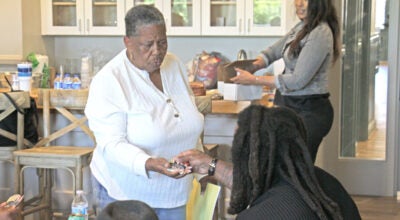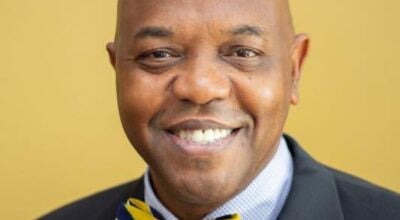AP Survey: Ala. gambling tax lacks needed support
Published 2:53 pm Saturday, January 31, 2009
Questions State Sen. Hank Sanders answered nearly a month ago about taxing bingo in Alabama have resurfaced.
Sanders, D-Selma, spoke with local citizens about several issues, including placing a tax on gambling, during the first in a series of town hall meetings he had planned.
“This state does not collect a penny from bingo,” Sanders said during the meeting.
It appears lawmakers don’t want that to change.
An Associated Press survey of the Alabama Legislature finds many legislators have no desire to expand and tax gambling as a way to ease the state’s financial woes.
Slightly more than one-third of the House and Senate members responding say they would like to expand and tax gambling — far short of the 60 percent support needed to pass it in the legislative session starting Tuesday. The others are opposed or undecided.
“I don’t see any consensus coming together right now,” said Sen. Bobby Singleton, D-Greensboro, who has the Greene County dog track in his district.
The last two years, the House has turned back legislation to allow electronic bingo at the Birmingham and Mobile dog tracks and levy taxes on the games. Lawmakers expect to see a similar proposal in the upcoming session.
In a survey answered by 70 percent of the House and 94 percent of the Senate:
36 percent of the House members responding and 37 percent of the Senate said they would support the idea.
40 percent of the House members responding and 33 percent of the Senate said they would oppose it.
24 percent of the House members responding and 30 percent of the Senate were undecided.
Legislators enter the session expecting to have to make drastic cuts in the state education and General Fund budgets due to the recession. Lawmakers say there is no sentiment for raising taxes on citizens, but several have suggested taxing electronic bingo, which is currently untaxed.
The dog tracks in Greene and Macon counties have electronic bingo. Electronic bingo halls also operate in Walker and Lowndes counties. All the operations pay money to charities.
The Poarch Band of Creek Indians also operates electronic bingo gambling halls in Montgomery, Atmore and Wetumpka, but the Indian operations are outside the state’s taxing authority.
The Alabama Education Association’s delegate assembly has recommended Alabama tax electronic bingo at a rate of 20 percent of the gross revenue after paying winners.
AEA Executive Secretary Paul Hubbert has been negotiating with gambling operators to levy a tax, expand electronic bingo to the Birmingham and Mobile dog tracks, legitimize all existing electronic bingo operations, and create a state gaming commission.
Hubbert said there was no agreement yet. Even if there was, he said it would be hard to pass because the prospect of federal economic stimulus money has taken some pressure off the Legislature to raise revenue from gambling.
“Alabama has never raised revenue for education without being in a crisis,” he said.
The chairmen of the Legislature’s two education budget committees, Sanders and Rep. Richard Lindsey, D-Centre, are recommending the Legislature look at an electronic bingo tax.
“It’s a serious problem that we don’t get any state revenue from bingo,” Sanders said.
An opponent, House Minority Leader Mike Hubbard, R-Auburn, is predicting the same outcome as last year, especially with three fewer Democrats in the Senate than a year ago.
“I can’t figure out how they have the votes,” he said.
Republican Gov. Bob Riley is opposing taxation because he questions the legality of some of the games in the state, and he doesn’t want to pass anything that legitimizes them.
Rep. John Knight, chairman of the House Government Appropriations Committee, likes the tax idea but said the governor’s opposition is a roadblock.
“If you don’t have the support from the administration, I don’t think it is going to pass,” Knight, D-Montgomery, said.




